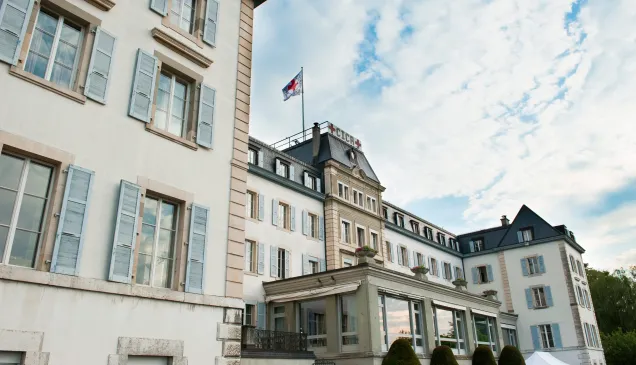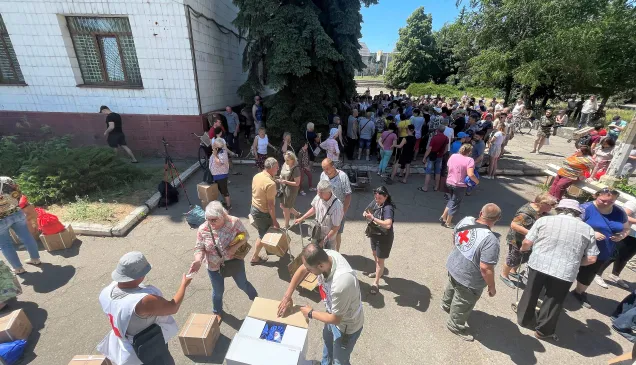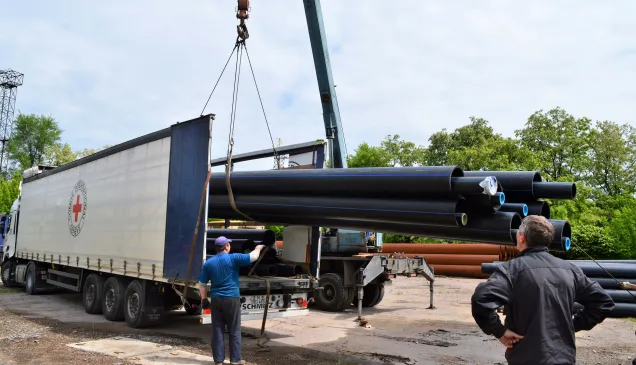Ukraine: Risking lives to restore power in front-line villages
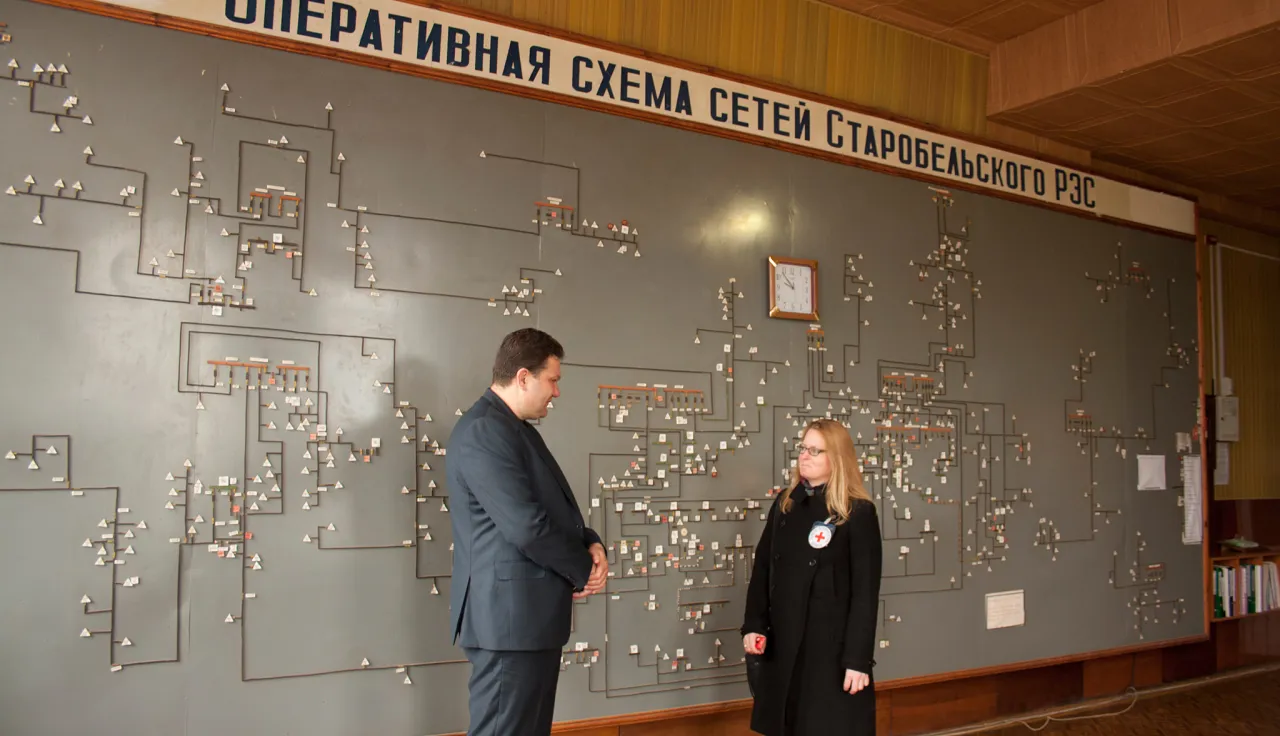
When conflict spreads, front lines may divide more than just communities. They can also split water and power systems, blacking out homes, crippling hospitals and closing schools.
Eduard Anatolievich Galgash (47) has worked for the Lugansk Energy Association (LEO) for the past six years, but never in such difficult circumstances as now.
When the conflict in eastern Ukraine intensified last summer, the electricity network that LEO maintained across the whole of Lugansk region became one of the casualties. As an emergency measure, deputy director Galgash and around 90 other staff moved from Lugansk to the other side of the battle zone and set up operations in the company's district office in Starobilsk.
"We cover the government-controlled areas from here," he explains. "Our colleagues who stayed behind in Lugansk maintain the network on that side of the front line. We're in touch with them all the time, because the network is like blood vessels; you can't just cut it in half."
A war-damaged economy has left LEO understaffed, while repair and maintenance teams are risking their lives in villages on both sides of the front lines, mending broken power lines and transformers in areas that are often contaminated with mines and unexploded ordnance. Six workers have died over the past year.
Difficult conditions
In the district office, technicians and engineers work under difficult conditions, crouched over computers on white plastic tables. A wall in the operations room maps out the electricity network like a giant maze.
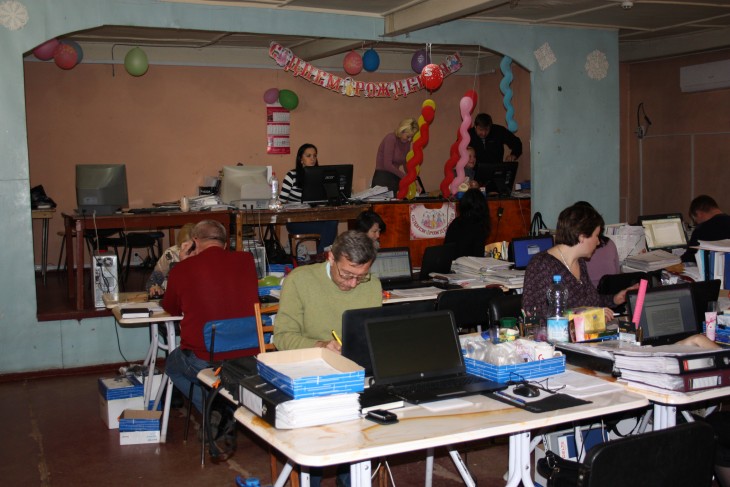
Starobilsk, near Severodonetsk, Ukraine, 17 April 2015. Engineers at the Starobilsk district office keep the electricity network running under difficult conditions. CC BY-NC-ND / ICRC / J. Barry
"In Lugansk, everything's computerized," laments Mr Galgash, "but here we're working with a system that was created perhaps 50 years ago."
Nature has also taken its toll. "Last night, there was a terrific storm and the men on duty were called out several times," Galgash explains. "Even the lights in our cabins went out," he jokes, referring to the company's children's camp where his team has been living since coming to Starobilsk. "It's the only place still without power this morning."
"Helping to repair and maintain electricity and water systems restores normality to people who have been deprived of both during a conflict," says Michael Shearing, the ICRC's water and habitat coordinator in Kiev. "It also makes life a little easier for displaced families as they return home."
Soaring fuel prices, coupled with a growing scarcity of equipment and spare parts, have been affecting factories and services since the conflict in eastern Ukraine began a year ago. The ICRC provided LEO with parts and oil for a damaged transformer last January, and there are plans to replace another two transformers serving villages close to the front line. With a fragile ceasefire in place since mid-February, there is no time to lose.
Camp life
Back in Starobilsk, Mr Galgash took us to see the children's summer camp that serves as temporary accommodation for LEO staff.
Set in pine woods, the brightly coloured cabins and climbing frames seemed incongruous quarters for engineers and managers more used to a comfortable urban lifestyle than to roughing it in the woods.
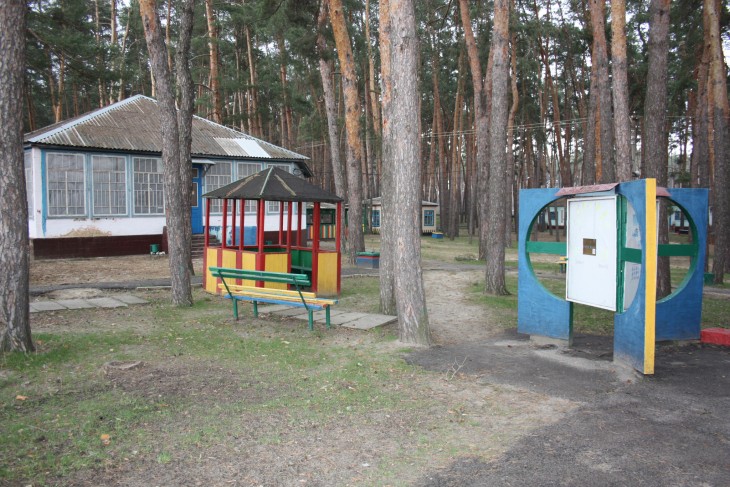
Starobilsk, near Severodonetsk, Ukraine, 17 April 2015. Staff who have relocated from Lugansk to Starobilsk are living in the summer camp for children that the power company owns. CC BY-NC-ND / ICRC / J. Barry
"This is the dormitory I share with four colleagues," the deputy director explained as he opened a door and flashed his torch around the cramped beds and piles of personal belongings. "And over here is the dining room where we all eat," he added, moving across to another building. Asked what he and his colleagues talked about in the evenings, Mr Galgash smiled. "Work, mostly, except when there's football on TV."
In the camp's spacious kitchen three cooks were busy heating large cauldrons of water.
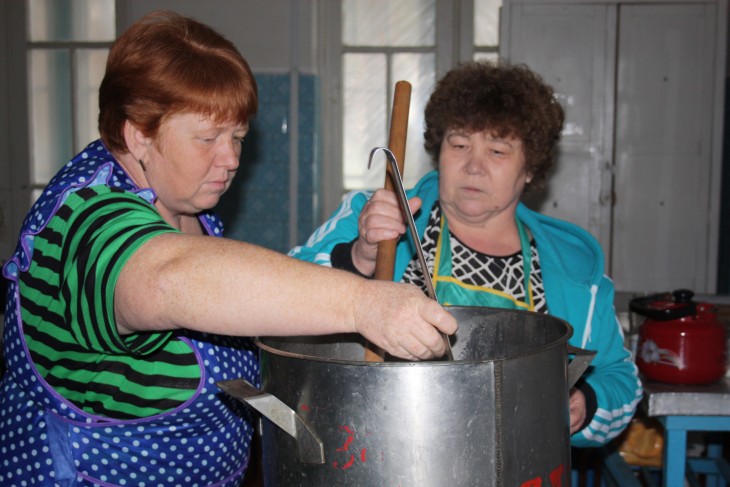
Starobilsk, near Severodonetsk, Ukraine, 17 April 2015. The cooks in the summer camp ladle out tea for their visitors. CC BY-NC-ND / ICRC / J. Barry
"They normally cook for the kids during the summer holidays," said Mr Galgash as he introduced the three women. "Now they work for us full time."
"It's much the same," the head cook announced as the other two ladled out tea. "Only these lads are taller. And they eat more!"
A number of female employees are also living in the spartan camp, including Mr Galgash's daughter, an engineer.
"We expect to be here for some time," concludes her father. "We'd all like to go home," he adds, somewhat wistfully, "but if we're to keep the network functioning we'll have to stay until the situation improves. Our colleagues in Lugansk say the same."

Starobilsk, near Severodonetsk, Ukraine, 17 April 2015. The ICRC visitors leave the summer camp where the displaced engineers are living. CC BY-NC-ND / ICRC / J. Barry

